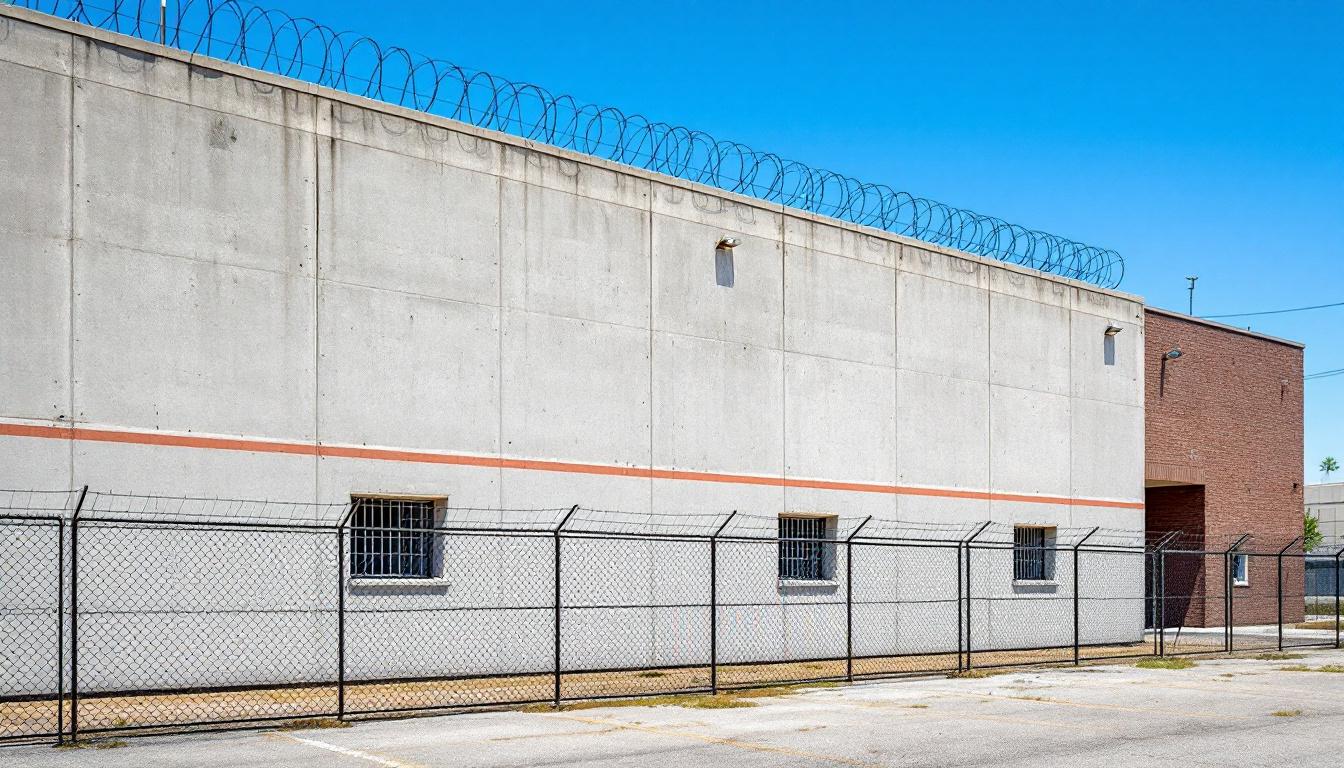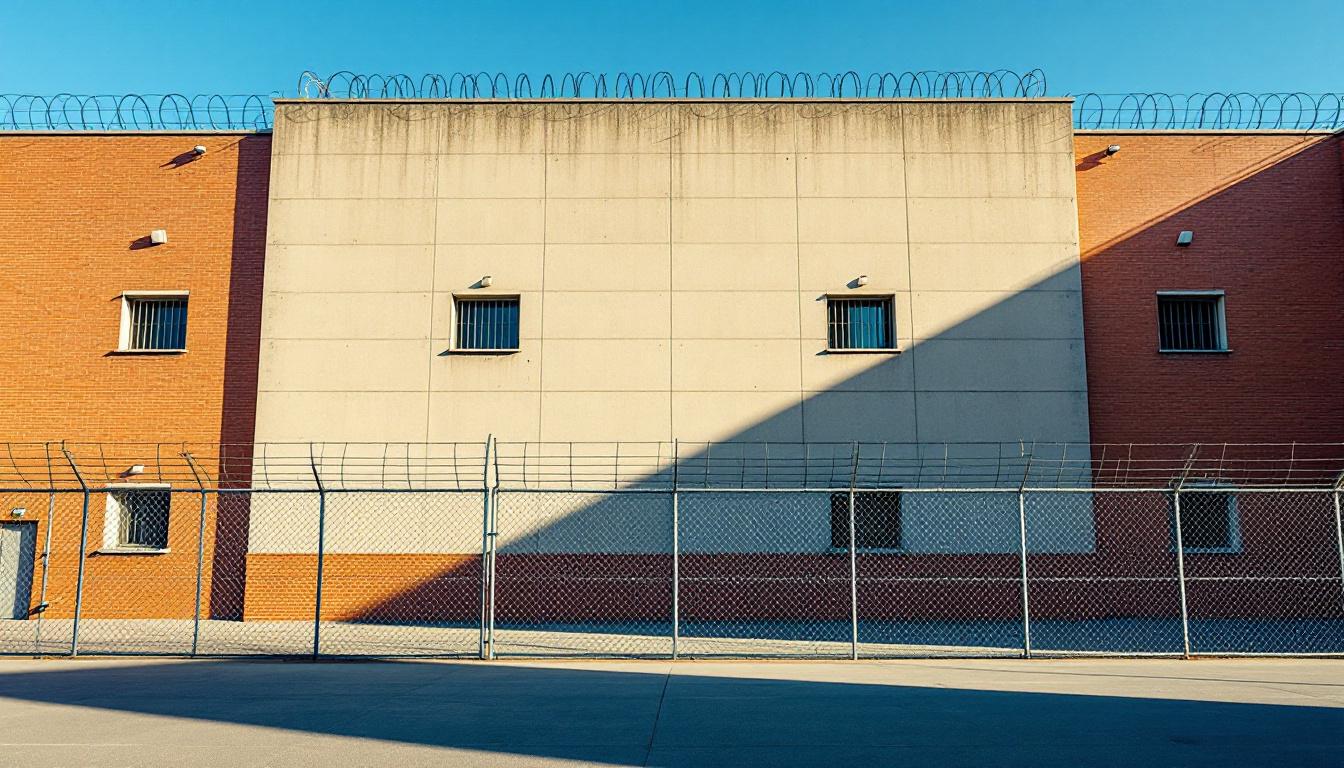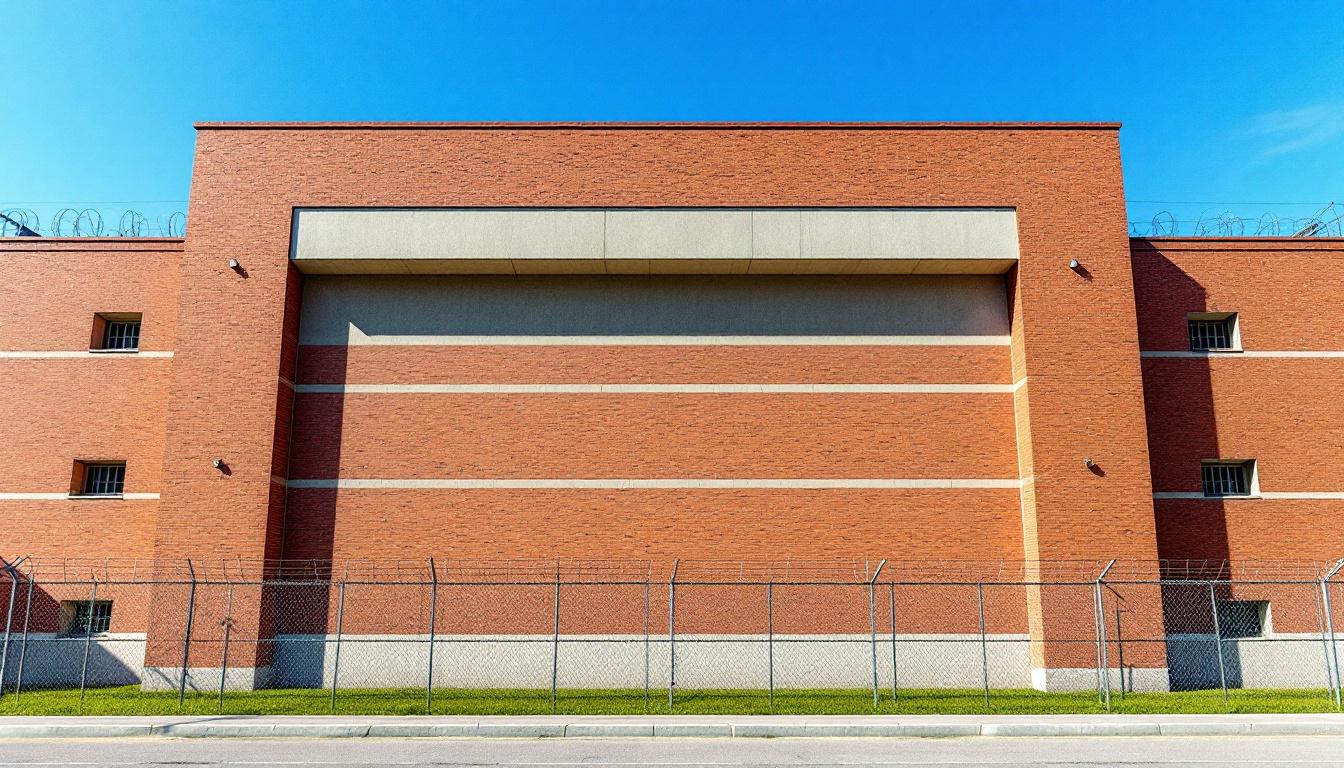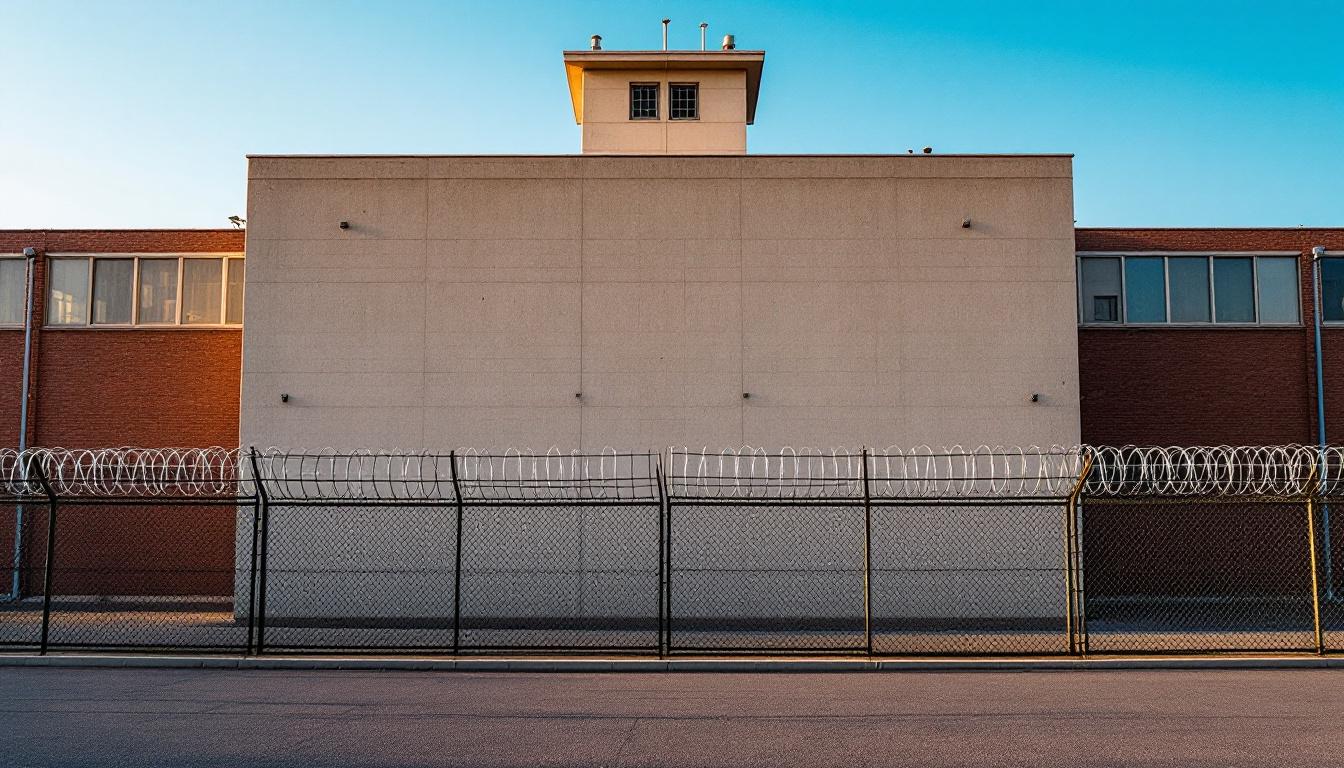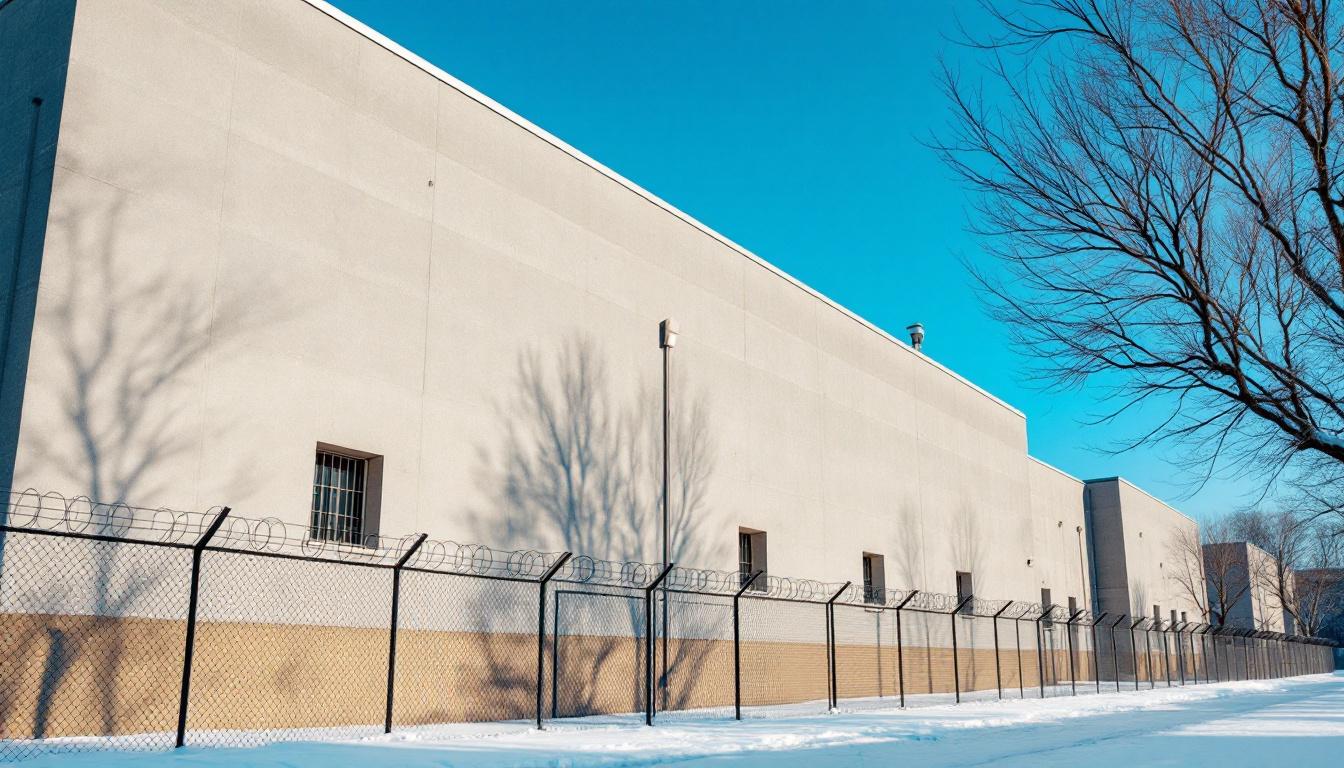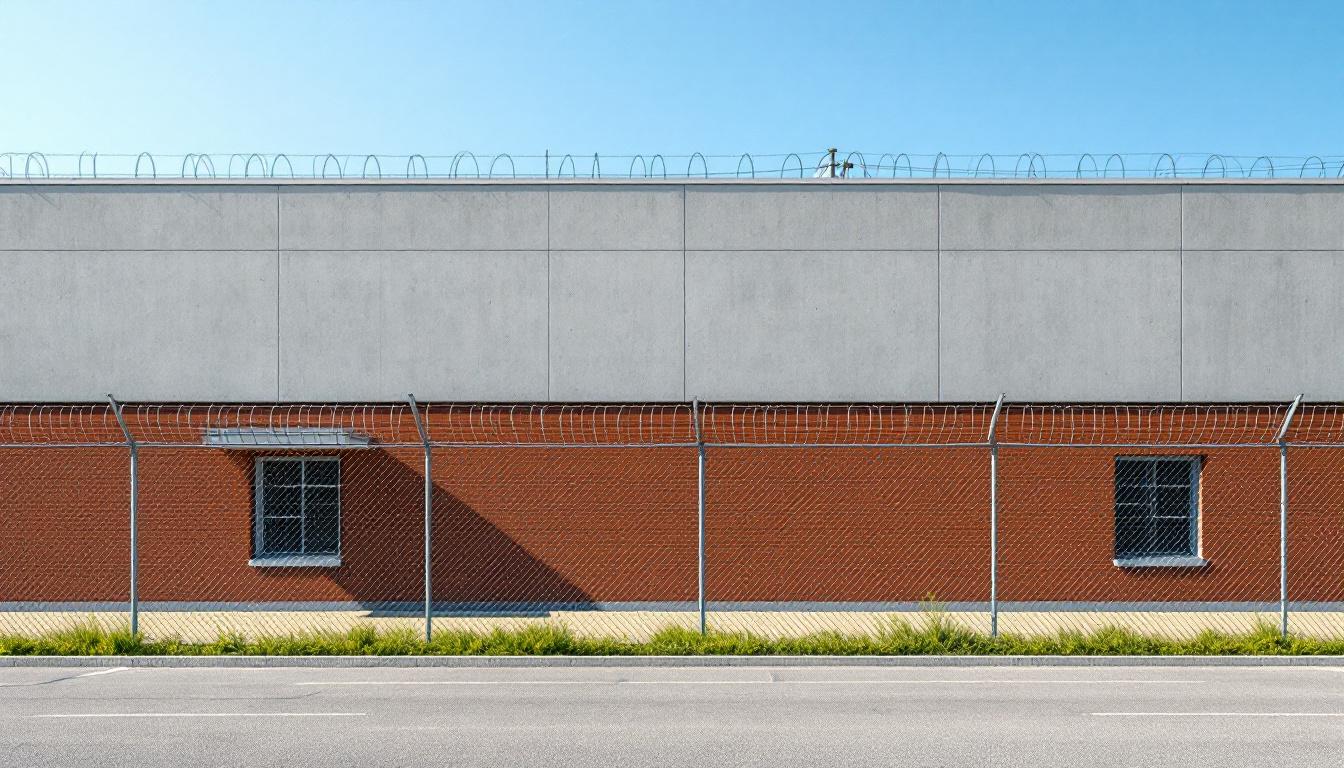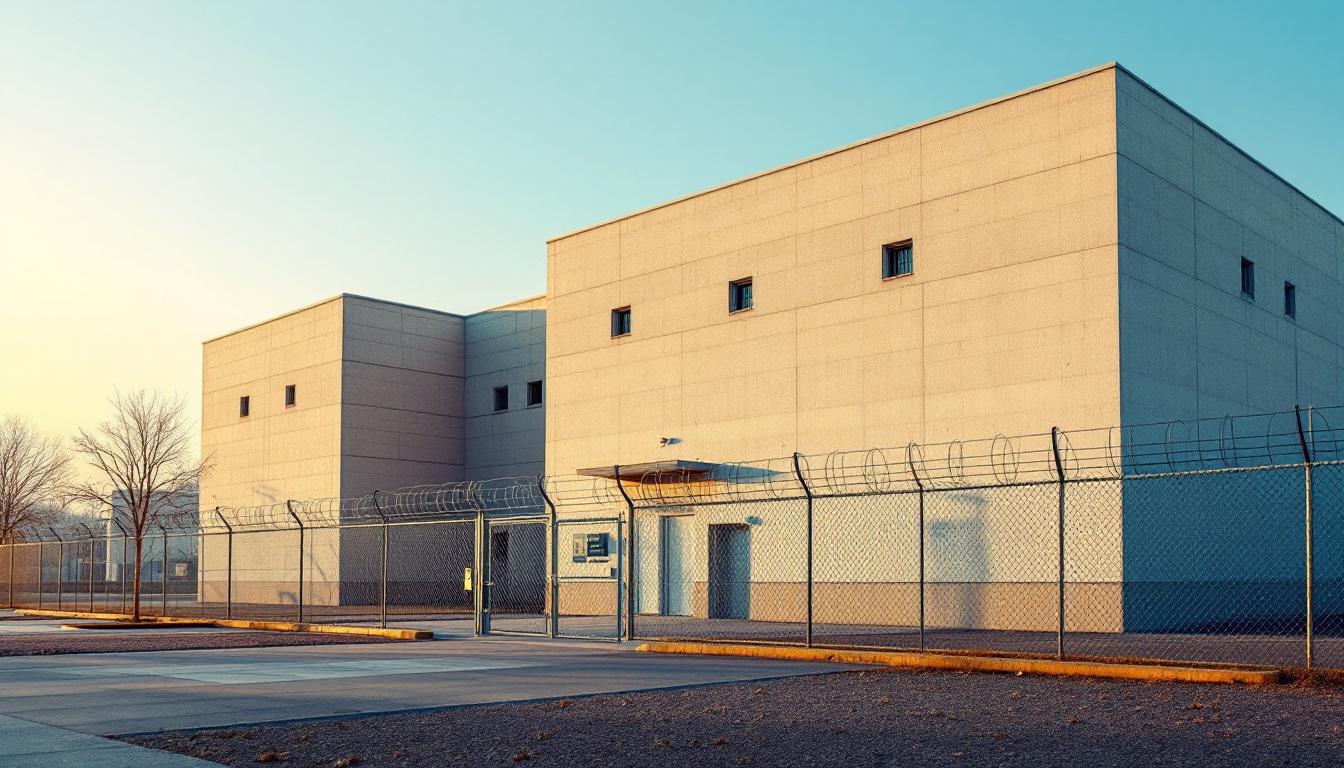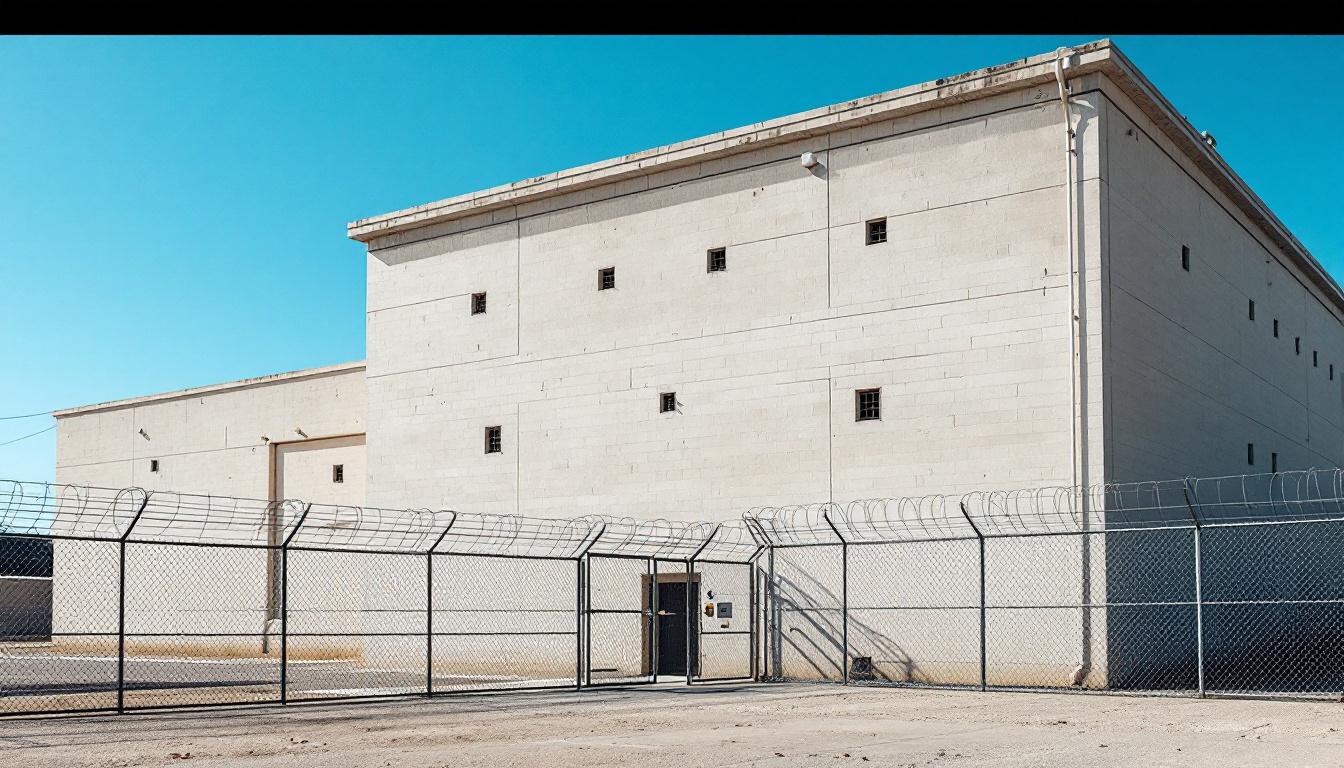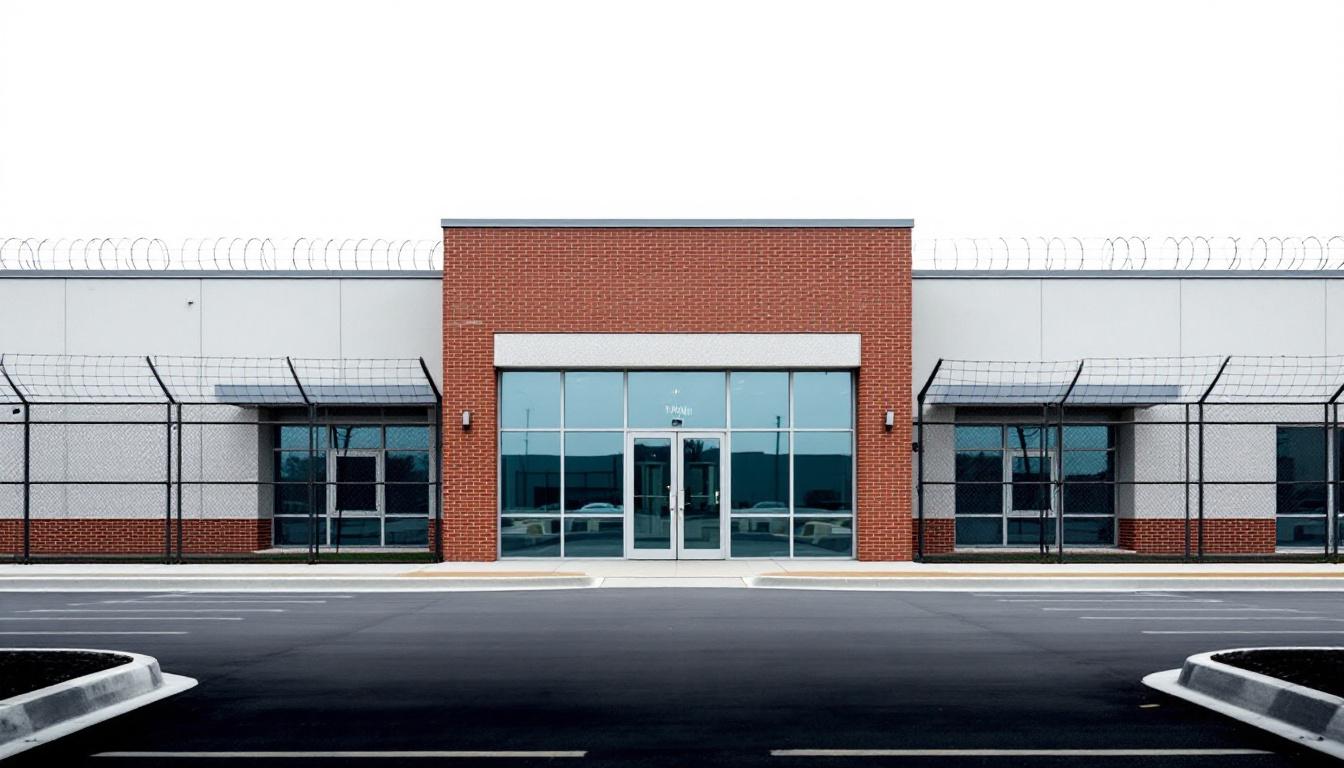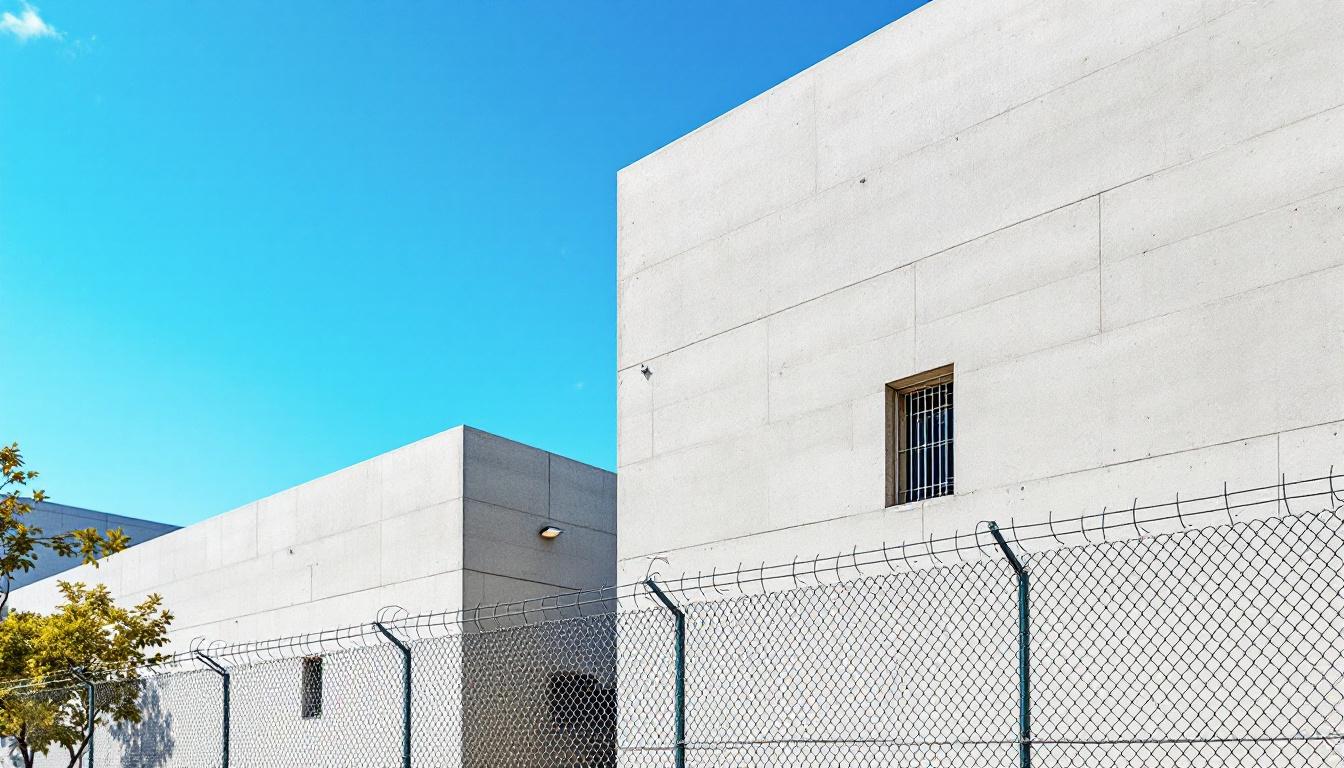
Quick Navigation
How to contact an inmate at Detention Center
This comprehensive guide will walk you through how to connect with an inmate at Detention Center. Follow the steps below to find an inmate and send letters and photos:
- Search for the inmate using our search tool below
- Create your account or log in to Penmate
- Write your message (up to 6,000 characters)
- Send instantly - inmates receive printed copies daily
Find an Inmate
Search for an inmate to start communicating today
Tip: You can search by first name, last name, or inmate ID number
To contact a person at Detention Center start by searching for the person on the facility website. Perform a search by following these steps:
- Step 1: Enter their first name and last name into the search form and click "Search"
- Step 2: Locate their inmate record
- Step 3: Write down their Inmate ID and any housing information provided
Important! Be sure to enter the person's full name. Nicknames should not be used.
How to Send Messages to Inmates

You can use your phone or computer to send emails, letters, and photos to an inmate. Messages are sent electronically to inmate tablets or kiosks at the facility. If you would like to send a message, start by searching for an inmate at Detention Center.
Sending Photos and Postcards

A great way to send love and support to a loved one at Detention Center is to send photos and postcards. It only takes a few minutes to send photos from your phone and it makes a huge difference. You can also mail postcards with words of support and inspiration, or design your own postcard for special moments like birthdays and holidays.
Important! Be sure not to send any explicit photos or they may not be approved by the facility. You can also use a photo printing app like Penmate to make sure your photos are printed at the correct size (4x6 or 3x5) and are mailed according to the rules and regulations of Detention Center.
Frequently asked questions about Detention Center
-
How long does it take to deliver a message?
If you're sending an email message your letter is usually delivered within 24-48 hours. For messages sent via mail you should expect delivery within 3-7 days. All messages will need be approved by Detention Center.
-
How much does it cost to send a message to Detention Center?
You can send a message free using your phone or mail a message via USPS for the price of a $0.60 stamp and envelope. You can also purchase credits or e-stamps from services starting at $1.99.
-
What services can I use to contact an inmate at Detention Center?
Penmate
You can use Penmate to send letters and photos to an inmate from your phone. It's an easy way to stay in touch during your loved one's incarceration. Use the inmate locator to find an inmate's location and contact information, then you can send messages within a few minutes.
Securus messaging
Securus may be another option for communicating with an inmate at Detention Center. You can create a friends and family account and purchase credits to send messages. All messages will be reviewed and must be approved by the facility.
JPay
Some county jails and state prisons may support sending messages with JPay. You must register an account with the system, find your loved one, and purchase stamps to send messages. For some locations you can also attach photos.
Smart Jail Mail
You may also check if Smart Jail Mail is available at Detention Center. Smart Jail Mail is operated by Smart Communications and has contracted with some state and county jails. After purchasing credits, your messages and photos are sent to the facility, printed out, and then handed out to your loved one.
-
What is the mailing address of Detention Center?
Mailing address:
Detention Center
2594 Veterans Blvd
Thibodaux, LA 70301
Phone: (985) 449-4458 -
What are the visiting hours at Detention Center?
Visiting hours at Detention Center vary by housing unit and security level. Generally, visits are scheduled on weekends and holidays, with some facilities offering weekday visits. Contact the facility directly at (985) 449-4458 or check their website for the current visiting schedule. Visits typically last 30-60 minutes and must be scheduled in advance.
-
What items are prohibited when sending mail to Detention Center?
Prohibited items typically include: cash, personal checks, stamps, stickers, glitter, glue, tape, staples, paperclips, polaroid photos, musical or blank greeting cards, hardcover books, magazines with staples, and any items containing metal or electronics. Only send letters on plain white paper with blue or black ink. Photos must be printed on regular photo paper (no Polaroids). Always check with Detention Center for their specific mail policies.
-
How do I send money to an inmate at Detention Center?
You can send money to an inmate at Detention Center through several methods: 1) Online using JPay, Access Corrections, or the facility's approved vendor, 2) Money orders mailed directly to the facility with the inmate's name and ID number, 3) Kiosks located in the facility lobby, or 4) Over the phone using a credit or debit card. Fees vary by method, typically ranging from $2.95 to $11.95 per transaction.
-
Can I schedule a video visit with an inmate at Detention Center?
Many facilities now offer video visitation as an alternative to in-person visits. At Detention Center, video visits may be available through services like Penmate, Securus Video Connect, GTL, or ICSolutions. Video visits typically cost $10-20 for 20-30 minutes and must be scheduled in advance. You'll need a computer or smartphone with a camera and reliable internet connection. Contact the facility for their specific video visitation policies and approved vendors.
-
What identification do I need to visit an inmate at Detention Center?
All visitors must present valid government-issued photo identification such as a driver's license, state ID, passport, or military ID. Minors must be accompanied by a parent or legal guardian who can provide the minor's birth certificate. Some facilities require visitors to be on the inmate's approved visitation list, which may require a background check. Contact Detention Center for specific ID requirements and visitor approval procedures.
-
How can I find out an inmate's release date?
To find an inmate's release date at Detention Center, you can: 1) Use the online inmate search tool if available, 2) Call the facility's records department, 3) Contact the inmate's case manager or counselor, or 4) Have the inmate provide this information during a call or visit. For privacy reasons, some facilities only release this information to immediate family members.
Facility Overview

About Detention Center
Within the heart of Louisiana’s bayou country, correctional facilities serve as crucial components in the state’s comprehensive approach to justice and rehabilitation. Lafourche Parish Corrections, LA operates as a detention facility in Thibodaux, providing essential services that align with Louisiana’s broader correctional objectives while serving the comprehensive needs of this culturally rich region. The facility typically houses individuals awaiting trial or serving shorter sentences, functioning as an integral part of the local justice system that connects families and communities throughout Lafourche Parish and surrounding areas.
This LA correctional facility generally maintains programs designed to support both immediate detention needs and longer-term reintegration goals that reflect Louisiana’s commitment to reducing recidivism. The population services may include educational opportunities, substance abuse counseling, and vocational training programs that prepare individuals for successful community reentry. Located in Thibodaux, the facility often coordinates with local organizations and state agencies to provide comprehensive support services, recognizing that effective corrections involves collaboration between multiple community stakeholders. The facility’s operations typically emphasize maintaining family connections and community ties, understanding that these relationships play vital roles in successful rehabilitation outcomes.
Through its integration with state correctional goals, Lafourche Parish Corrections generally focuses on balancing public safety with rehabilitation opportunities that serve both individual needs and community welfare. The correctional facility may offer various support services including medical care, mental health resources, and pre-release planning assistance that helps prepare individuals for their return to the community. This approach reflects Louisiana’s evolving correctional philosophy that emphasizes accountability, personal growth, and community reintegration as essential elements in creating safer communities throughout the region.
Programs & Services
Support reaches the population through carefully structured programs designed to address individual needs and prepare participants for successful community reintegration. The facility typically emphasizes a holistic approach that recognizes each person’s potential for growth and positive change. These programs often focus on building practical skills while strengthening personal foundations that support long-term stability.
Educational programs may supply basic literacy instruction, GED preparation, and continuing education opportunities that help participants advance their academic goals. Furthermore, vocational training programs often include hands-on instruction in marketable skills, with small engine repair being among the technical trades available. These educational and vocational offerings typically provide certificates or credentials that enhance employment prospects upon release.
Faith-based services frequently serve as a cornerstone of support, offering spiritual guidance and community connection for those who choose to participate. Creative writing programs may supply an outlet for self-expression and emotional processing, helping participants develop communication skills while exploring personal experiences. Additionally, building maintenance training often provides practical work experience that builds both technical competence and work habits valued by potential employers. These support programs typically emphasize personal development and the strengthening of family relationships, recognizing that strong community connections are essential for successful reintegration.
Daily Life & Visitation
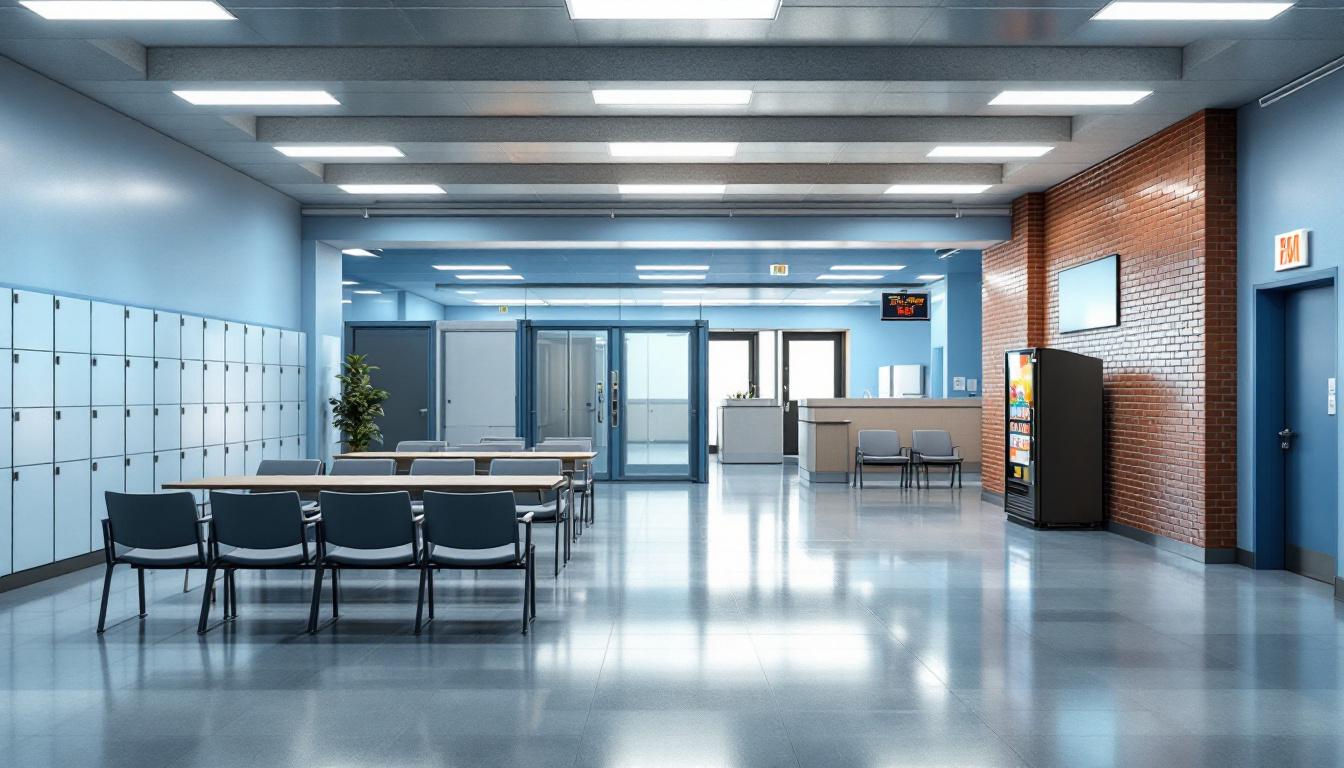
Systematic organization shapes every aspect of the experience at Lafourche Parish Corrections, where structured schedules and clear protocols guide the population through each day. Today’s routine typically begins with early morning counts and meal service, followed by consistently scheduled work assignments, programming activities, and recreational periods. The facility generally maintains predictable daily patterns that help residents understand expectations and navigate their time effectively.
Housing arrangements typically consist of dormitory-style accommodations or smaller housing units, depending on classification levels and available space. The population usually shares common areas for dining, where meals are served at designated times throughout the day. Personal property allowances generally include basic necessities and approved items that can be purchased through the commissary system, which may operate on scheduled days during the week.
Furthermore, structured programming schedules supply educational opportunities, vocational training, and recreational activities that often include outdoor exercise periods and indoor fitness options. Although security protocols govern all interactions, visitation policies typically allow family members to maintain regular contact through scheduled visits and phone calls. Work assignments within the facility usually provide opportunities for residents to contribute to daily operations while developing practical skills, creating a framework that supports both institutional needs and personal development goals.
Ready to Connect?
Start communicating with your loved one today
Search for an Inmate
